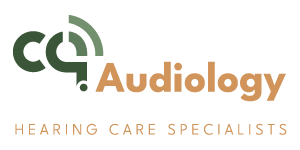Contact Us
We would love to speak with you.
Feel free to reach out using the below details.
Visit our main clinic
- T33 & 34A, City Centre Plaza, 24 Fitzroy Street, Rockhampton, QLD 4700
Get In Touch
- Phone: (07) 4848 6528
- Email: reception@cqaudiology.com.au
Trading Hours
- Mon-Fri 9:00AM - 5:00PM
- Sat 9:00AM - 12:00PM
Get a callback
Fill out the form below and we will contact you as soon as possible!
CQ Audiology Visiting Sites
BARCALDINE
Barcaldine 60 & Better Program
13 Willow Street
QLD 4725
BILOELA
Ace Medical Centre
48 Grevillea Street
QLD 4715
BLACKALL
Blackall Hospital
189 Landsborough Highway
QLD 4472
BLACKWATER
North Blackwater General Practice
14 Blain Street
QLD 4717
EMERALD
Lot 1 Pilot Farm Road
QLD 4720
MOUNT MORGAN
41 Morgan Strreet
QLD 4714
ROCKHAMPON CITY
T 33 & 34A City Centre Plaza
24 Fitzroy Street
QLD 4700
TAMBO
Tambo Multi Purpose Centre
26 Arthur Street, Tambo Queensland 4478
LONGREACH
North & West Queensland Primary Health Sercvies
19 Duck Street, Longreach Queensland 4730
YEPPOON
Keppel Bay Medical Centre
Shopt 26, Keppel Bay Plaza
64-67 James Street
QLD 4703

Experience Unmatched Clarity with Hearing Test The Range - Rockhampton
Why Do I Need a Hearing Test?
Have you ever considered how crucial your hearing is to your daily interactions and overall quality of life? If you’re finding it increasingly difficult to keep up with conversations or if people seem to mumble more than they used to, it might be time for a hearing test. These tests are not just for diagnosing severe hearing loss; they can detect subtle changes that might affect your communication skills, social interactions, and even your cognitive health. Understanding the nuances of your hearing ability could open up avenues for enhancing your auditory experience that you might not have considered before. Curious about what a hearing test could reveal about your hearing health?
Understanding Hearing Tests
Hearing tests evaluate your ability to hear different sounds and pinpoint the type and severity of any hearing loss you may have. Conducted by audiologists, these tests aren’t just about sticking headphones on and listening for beeps. Instead, they’re comprehensive assessments that determine how well you can hear across a range of frequencies and volumes, helping to identify specific issues with your hearing.
The process is straightforward. You’ll typically sit in a soundproof room wearing headphones. The audiologist plays sounds at various frequencies and volumes, and you’ll indicate when you can or can’t hear them. This data is crucial as it guides the audiologist in diagnosing the type and extent of hearing loss, which can range from mild to profound.
Understanding your hearing health isn’t just about acknowledging if you have a problem. It’s also about early detection and intervention, which are key to managing or even improving your condition. The results from these tests form the baseline for any treatment plan, whether that’s getting fitted for hearing aids, undergoing surgery, or simply monitoring your hearing health over time. Don’t underestimate the importance of these evaluations—they’re your first step toward better hearing health.
Signs You Need a Test
If you’re struggling to follow conversations or often ask others to repeat themselves, it might be time to consider a hearing test. Noticing that you can’t catch every word in a chat isn’t just annoying; it’s a clear sign your ears might need some assistance. If you find yourself feeling embarrassed or withdrawing from social interactions because you can’t follow the talk, that’s another red flag.
Hearing issues aren’t always about volume; they can be about clarity too. Maybe you hear people speaking but it sounds muffled, or you think they’re mumbling. This frustration can spill over into your interactions with family and coworkers, making everyday communication more stressful than it should be.
Do you notice a constant ringing in your ears? That’s called tinnitus, and it’s often associated with hearing loss. Also, consider how well you can hear in noisy environments, like restaurants or crowded rooms. If you find it tough to focus on a single conversation amid background noise, your hearing might be compromised.
Lastly, if you’ve tried online hearing tests and they suggest a problem, don’t ignore them. It’s crucial to follow up with a professional audiologist or doctor for a comprehensive check.
Types of Hearing Tests
Recognising these signs should lead you to explore the various hearing tests available to accurately assess your hearing health. As an adult, you’ll likely encounter pure tone audiometry, a standard method used to measure how well you can hear sounds at different pitches and volumes. This test involves wearing headphones and responding to tones in a quiet environment, helping to pinpoint the quietest sounds you can hear at various frequencies.
Another crucial test is tympanometry, which evaluates your middle ear’s health by using air pressure to check eardrum movement and middle ear pressure. It’s not about hearing sensitivity but about identifying problems like fluid in the ear or ear infections, which can affect your hearing clarity.
For a more comprehensive understanding, doctors might also recommend objective tests such as otoacoustic emission testing or auditory brainstem response testing. These don’t require active participation like responding to sounds. Instead, they measure the ear’s response to sound vibrations and the auditory pathway’s activity to the brain, respectively, providing detailed insights into the inner workings of your hearing system.
These varied tests ensure a thorough evaluation tailored to your specific needs, essential for maintaining optimal hearing health.
Hearing Tests for Children
As a parent, it’s crucial to schedule regular hearing tests for your child to catch any auditory issues early. Children often don’t vocalise their hearing struggles, and missing these signs can hinder their language and learning development. Regular checks enable early intervention, which is key to managing potential hearing impairments effectively.
Hearing tests are designed to be child-friendly and cater to different age groups, ensuring your child feels comfortable and cooperative during the process. These tests are vital not just for detecting hearing loss, but also for confirming that your child is meeting crucial developmental milestones related to hearing and comprehension.
It’s important to remember that early detection through these tests can significantly impact your child’s academic and social skills. They help in diagnosing any subtle or overt hearing issues that mightn’t be apparent through observation alone. By keeping up with scheduled hearing assessments, you’re not only ensuring your child’s auditory health but also supporting their overall growth and development. So, make sure to discuss the best plan for regular hearing evaluations with your pediatrician or a hearing specialist.
How Hearing Loss Is Diagnosed
To diagnose hearing loss, an audiologist will conduct a series of tests that evaluate your ability to hear various sounds. These tests identify both the type and severity of hearing loss you might be experiencing. It’s crucial if you’re noticing symptoms like difficulty understanding conversations or a persistent ringing in your ears.
The audiologist will likely use different types of tests, suitable for any age, ensuring the assessment is comprehensive. You’ll go through procedures where various sounds and volumes are played, and you’ll indicate when you can hear them. This helps in pinpointing how well you hear across different frequencies and volumes.
Results from these tests are essential as they guide what treatment should be considered. They give a clear picture of what aspects of your hearing are affected and how severe the impairment might be. Understanding the detailed results can help you grasp the nature of your hearing health, making it easier to discuss further steps.
Where to Get Hearing Help
Now that you understand how hearing loss is diagnosed, let’s explore where you can find professional help for your hearing concerns. If you’re noticing issues with your hearing, the first step is to consult a doctor or an ear, nose, and throat (ENT) specialist. They can provide initial assessments and direct you to more specialised care if needed.
You can also visit an audiologist. Audiologists are healthcare professionals specifically trained to evaluate and manage hearing loss, tinnitus, and balance disorders in individuals of all ages. They can conduct detailed hearing tests, prescribe hearing aids, and offer therapy for hearing and speech issues.
For broader support, consider reaching out to organisations dedicated to hearing health. Australian Hearing and Better Hearing Australia are fantastic resources, offering guidance, hearing services, and community support programs. They can help you navigate your options and connect you with local services and professionals.
Additionally, The Shepherd Centre provides extensive information and support, especially for children with hearing impairments. Their resources can be incredibly valuable in understanding your condition and finding the right assistance.
Why Choose CQ Audiology for hearing test?
Choosing CQ Audiology for your hearing test ensures you’ll benefit from the latest technology and expert care. At CQ Audiology, you’re not just getting a routine check-up; you’re experiencing top-notch diagnostics facilitated by state-of-the-art equipment. This means your hearing test results aren’t only precise but also comprehensively address any concerns you might’ve about your hearing health.
The audiologists at CQ Audiology aren’t just experienced; they’re deeply committed to providing you with an expert evaluation and diagnosis. You’ll find that their approach isn’t one-size-fits-all. Instead, they tailor their treatment plans to fit your specific needs, ensuring that you receive the most effective care possible.
Moreover, scheduling an appointment at CQ Audiology couldn’t be easier. They understand that your time is valuable, so they offer flexible scheduling options to fit your busy life. Once your test is complete, the support doesn’t end there. CQ Audiology provides thorough follow-up care, offering guidance and support to help you navigate your hearing health journey. Opting for CQ Audiology means you’re choosing a partner who’ll be with you every step of the way, ensuring your hearing needs are met with the utmost care and professionalism.
Conclusion
You’ve learned why regular hearing tests are crucial, especially if you’re experiencing signs of hearing loss. By understanding the types of tests available and recognising the importance of early detection in children, you can take proactive steps towards better hearing health.
Don’t hesitate to reach out to CQ Audiology for comprehensive evaluations and personalised care. Remember, taking a hearing test is the first step towards improved communication and quality of life. Don’t wait—book your test today!
DISCLAIMER: The content on our site is intended for educational purposes only and should not be interpreted as an endorsement or recommendation of any treatments or products without a comprehensive hearing assessment. Users should seek professional advice and fully understand any potential side effects or risks before starting any treatment. Products mentioned on our site are not available for purchase by the public without prior consultation with a hearing health expert.
